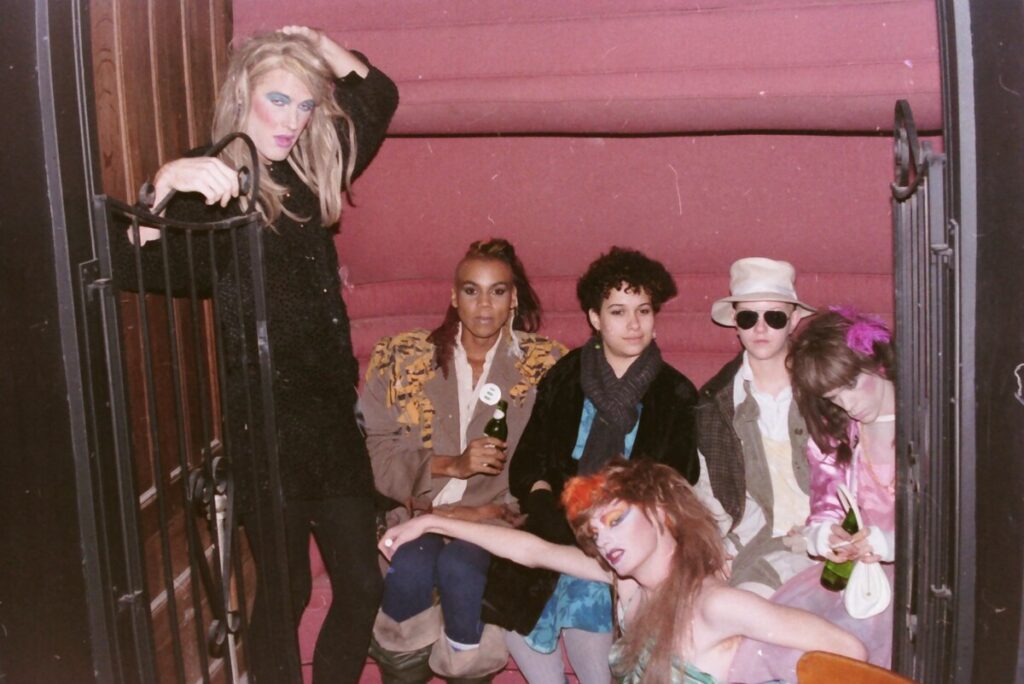When you think of RuPaul, easily the most famous drag queen in America, do you think of 1980s Atlanta punk? I didn’t either. But as it turns out, the reality TV show star got his start in the close-knit scenes of punk and queer life in Atlanta.
As part of my larger work studying the connections between punk, politics, and activism in Atlanta, I have interviewed multiple members of the 1980s and 90s Atlanta punk scene. They all have their similarities and differences, but one surprising fact remains the same among all of them: they all have a RuPaul story. Some were intimidated by the soon-to-be star, some remember RuPaul’s performance in the new wave band Wee Wee Pole, and one participant even ended up getting RuPaul’s apartment when he left Atlanta for New York. Others remember him walking the streets, posting flyers for his acts like any other punk.

RuPaul is just an individual example of the overlaps between the punk and queer worlds in Atlanta. The two scenes were closely tied, and shared locations, members, and ideology. For both groups, appearance became activism. One person I spoke to described appearing punk in Atlanta as being a “lightning rod for random physical abuse”. He explained to me how Atlanta was, despite its progressive reputation, incredibly unsafe for those who were different. Much like how coming out as gay can be an act of activism, claiming a punk identity was a radical act as well. Because of this experience, punks and queer people often found shared community and solidarity as the “freaks” of Atlanta. Part of punk’s activism was a kind of radical acceptance, explained to me by another participant who stated “It was that kind of thing of like, it’s okay to be gay. It’s okay to be black. It’s okay to be a woman. Those things didn’t matter, in the punk movement.”

Bands that occupied the gray area between punk and queer subcultures also engaged in their own activism. For example, Opal Foxx Quartet and The Jody Grind played a show at the Georgia State Capitol to protest the state’s anti-sodomy law. They played with their own unique sense of humor, such as donning t-shirts with the phrase “lick the sodomy law” on them. This show also functioned as a benefit, and a few years later Georgia’s anti-sodomy law would be struck down. Benjamin Smoke, who fronted the Opal Foxx Quartet, would also challenge their own audience, making statements on stage like “for a faggot, do I have a rockin’ band or what?” (Sillen and Cohen 2000).
Both groups shared community and venues as well. Some punks found a second home in gay bars after venues would close. Randy Blazak, for example, would head over to the Backstreet gay bar after his venue of choice, 688, closed at two in the morning. Growing up in a homophobic environment, his views began to change as he realized “the ‘queers’ were a part of my tribe of misfits. That was the beginning of the end of my homophobia” (2016). He explained to me how gay and straight punks alike were welcomed into the bar, and that gay bars became an important part of his life in Atlanta’s underground scene. As he describes in his blog post, Backstreet was “an oasis of sanity and disco lights” (Blazak 2016). Queer performers also found a home at punk clubs such as 688, including RuPaul and The Now Explosion, among others.
Atlanta in the 1980s and 90s was not safe for everyone. But through the danger, misfits found each other. They danced, drank, made music, and made some trouble too. Important links formed between the two scenes that inspired activism and personal change. While punk and queer culture has gone largely mainstream today, it is worthwhile to remember their radical roots and the community they built.
Works Cited
Randall Blazak, “Ode to a Gay Bar”. Watching the Wheels: Feminist Fatherhood, June 15, 2016.
Peter Sillen, Jem Cohen. Benjamin Smoke, directed by Peter Sillen and Jem Cohen (2000, New York). Documentary.

As much as I loved the Wee Wee Pole shows at 688, my absolute favorite Ru moment was when the club would show Ru’s little movies on the video screen. There was one of him being chased by a Barbie doll that I will never forget. How could anyone be homophobic when the light of Ru Paul Charles shone upon them?